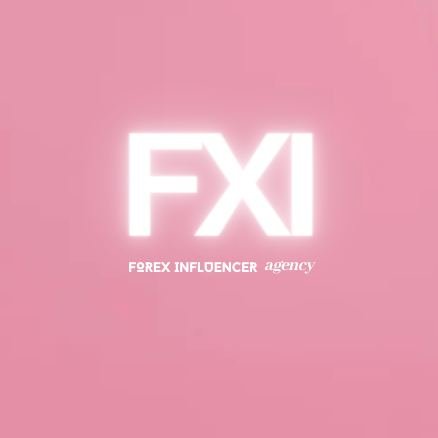Should You Trust Social Media Forex Gurus? A Guide to Spotting Real Expertise

The rise of social media has brought a surge of self-proclaimed Forex gurus promising to turn anyone into a profitable trader. While some provide genuine insights and valuable education, many are more focused on selling dreams than delivering results. For aspiring traders, the challenge lies in distinguishing between credible experts and those who prioritize personal gain over offering real value.
In this blog, we explore whether you should trust social media Forex gurus and provide practical tips for identifying authentic expertise.
The Appeal of Social Media Forex Gurus
Forex trading can be complex and intimidating, especially for beginners. Social media platforms like Instagram, TikTok, and YouTube offer an accessible way for people to learn the basics, follow trading strategies, and gain inspiration from success stories.
Common promises made by Forex gurus include:
- High returns with minimal effort.
- Exclusive strategies that guarantee success.
- “Secrets” that traditional traders don’t want you to know.
The allure is understandable—who wouldn’t want to make money quickly and easily? However, such promises often come with red flags.
Spotting Red Flags: Signs of a Fake Forex Guru
Not all Forex gurus are genuine, and spotting the fakes can save you time, money, and frustration. Here are key warning signs to watch out for:
1. Unrealistic Promises
Any Forex guru who claims you can turn a small account into massive profits within days or weeks is likely misleading you.
Reality Check:
Forex trading involves risk, and even the most experienced traders have losses. Sustainable success comes from long-term consistency, not quick wins.
2. Lack of Transparency
Gurus who refuse to show real trading results or use fake screenshots to demonstrate profits should raise suspicion.
Ask Yourself:
- Are they sharing verified trading statements?
- Do they explain their strategies clearly, or do they hide behind vague claims?
3. Excessive Focus on Lifestyle
Many fake Forex gurus emphasize luxury lifestyles—sports cars, designer clothes, and exotic vacations—rather than actual trading expertise.
Tip:
While success can afford a good lifestyle, genuine experts focus on educating their audience, not just flaunting wealth.
4. High-Pressure Sales Tactics
Be wary of anyone who pushes you to buy expensive courses, signal services, or mentorship programs without offering proof of their value.
Red Flag:
“If you don’t sign up today, you’ll miss out on life-changing opportunities!” Legitimate educators don’t need to rely on urgency to prove their worth.
5. No Professional Background
Forex trading requires knowledge of economics, technical analysis, and market psychology. Gurus with no verified trading experience or credentials may not be qualified to teach.
Verify:
Look for certifications, trading history, or a background in finance or economics.
Traits of a Genuine Forex Expert
While there are many pretenders, some Forex influencers genuinely offer valuable insights. Here’s what sets them apart:
1. Transparent Track Record
Authentic experts are open about their wins and losses, providing a realistic view of Forex trading.
Example:
They might share detailed case studies of trades, showing both successful strategies and lessons learned from mistakes.
2. Educational Focus
Instead of promising instant riches, credible influencers prioritize teaching the skills and knowledge you need to trade independently.
What to Look For:
- Tutorials on technical and fundamental analysis.
- Risk management strategies.
- Honest discussions about market challenges.
3. Realistic Expectations
A trustworthy Forex guru will emphasize the risks of trading alongside its rewards.
Quote to Remember:
“Trading is not a get-rich-quick scheme. It’s a skill that requires patience, discipline, and continuous learning.”
4. Positive Community Feedback
Check reviews, testimonials, and engagement within their community. A genuine expert often fosters an active, supportive trading community.
Tip:
Engage with their followers—ask about their experiences with the guru’s content or services.
How to Evaluate a Forex Guru
When assessing a Forex guru, take the following steps:
1. Research Their Background
Look for:
- Verified trading history.
- Professional experience in finance or trading.
- Certifications like Chartered Market Technician (CMT) or Certified Financial Planner (CFP).
2. Analyze Their Content
Does their content provide real value? High-quality educators often:
- Share free, actionable insights.
- Explain strategies in a way that’s easy to understand.
- Avoid over-simplifying or sensationalizing Forex trading.
3. Test Their Claims
Before investing in a course or signal service, test their free content. If it doesn’t add value, their paid offerings likely won’t either.
4. Beware of Hidden Costs
Many gurus promote expensive upsells disguised as “essential tools.” Ensure you’re not being lured into unnecessary expenses.
Influencer Spotlights: Trusted Forex Educators
Here are a few influencers who are widely respected in the Forex community for their authenticity and educational focus:
- Kiana Danial (@InvestDiva): Offers straightforward, beginner-friendly content with a focus on risk management.
- Akil Stokes (@AkilStokesRTM): Shares transparent trading insights and emphasizes skill-building over shortcuts.
- Rolf Schlotmann (@Tradeciety): Focuses on trading psychology and sustainable strategies.
Final Thoughts: Should You Trust Social Media Forex Gurus?
Social media Forex gurus can be a valuable source of inspiration and knowledge—but only if they’re credible. Avoid those who promise easy riches, pressure you into costly programs, or prioritize lifestyle over education. Instead, seek out experts who are transparent, educational, and realistic about what it takes to succeed in Forex trading.
By doing your due diligence and following the guidance of genuine educators, you can build a strong foundation for trading success without falling victim to scams.
Have you encountered a Forex guru on social media? Share your experience in the comments below and let us know your thoughts on navigating the influencer-driven world of Forex education
